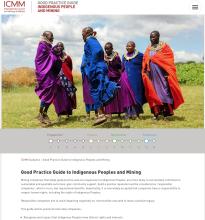Land Library
Bienvenue dans la bibliothèque du Land Portal. Explorez notre vaste collection de ressources en libre accès (plus de 74 000), comprenant des rapports, des articles scientifiques, des articles de recherche, des publications évaluées par des pairs, des documents juridiques, des vidéos et bien plus encore.
/ library resources
Showing items 1 through 9 of 332.Poverty is a critical problem in many parts of the world, especially in the developing countries. This has necessitated policy makers to have a keen interest in seeking ways of improving livelihoods and alleviating poverty.
Cenchrus ciliaris L. (African foxtail grass) and Eragrostis superba Peyr. (Maasai lovegrass) grass
species that are native to the rangelands have been promoted for rehabilitation of degraded areas
The current study seeks to assess sustainability of agricultural land use by identifying the effect of land use change on soil quality using cross-sectional data collected through a household survey among 525 farm households in densely populated areas of Kenya.
Global land acquisition and lease investments in developing countries by foreign companies have elicited a lot of controversy and interest in recent literature.
This set of Voluntary Principles on Security and Human Rights (VPs) have been developed to help any company looking to ensure their operations are undertaken in a manner that safeguards respect for human rights and fundamental freedoms.
This guide and its practical tools help companies:
• Recognise and respect that Indigenous Peoples have distinct rights and interests
• Understand that through law and/or custom, Indigenous People often have a special relationship to the land, territories and resources
The ICMM has developed 20 tools to support mining and metals companies in promoting sustainable community development. These tools will also be useful to companies involved in other sectors.
The Constitution of Kenya 2010 recognizes the principle of promoting alternative forms of dispute resolution including reconciliation, mediation, arbitration and traditional dispute resolution mechanisms by courts and tribunals when exercising judicial authority.1 While this provision is not spec





